Crack the Code: How To Preserve Farm Fresh Eggs
Primal Edge Health participates in the Amazon Services LLC Associates Program and other affiliate programs and therefore, may collect a share of sales or other compensation from the links on this page. This comes at no additional cost to you, and all the prices and availability are accurate at the time of publishing.
Do you have more farm fresh eggs than you can eat? Whether you have a coop full of overachieving hens or just hit the jackpot at the farmer’s market, it’s time to learn how to make those eggs last.
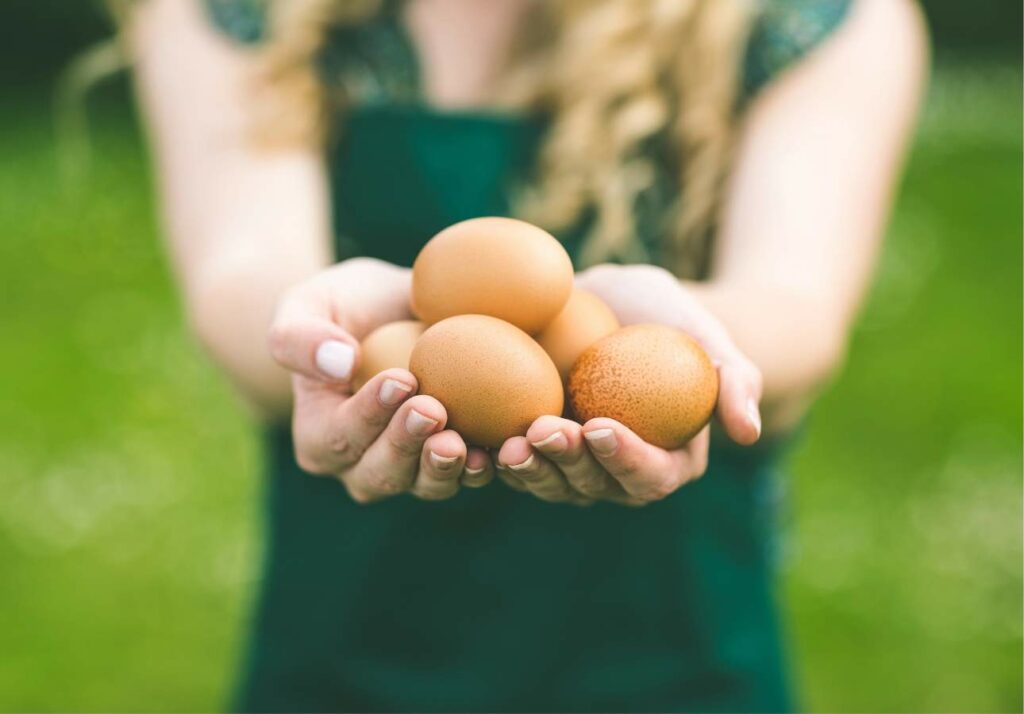
My family has a small chicken coop behind our house, and while the hens may be few, they produce a ton of eggs. Sometimes, even more eggs than my whole family can eat.
No one should ever throw away perfectly good eggs, even if they are extras. Luckily, I found several methods to keep them stable for longer. Here are four ways to preserve your farm fresh eggs for later.
Table of Contents (click to view)
Why Preserve Farm Fresh Eggs?
Preserving eggs for later takes quite a bit of work and preparation, but there are a lot of good reasons why you should do it. The best ones include:
- Avoid food waste: Preserving your extra eggs means they don’t go to waste. If some of them have already gone bad, try composting.
- Save money: Having a chicken coop is a money-saver in and of itself, especially with today’s skyrocketing egg prices. However, saving your extra eggs leads to even more money in your pocket.
- A steady supply of eggs: Stocking up on preserved eggs gives you a steady supply of eggs all year round, especially in emergency situations. Plus, you can easily reach into your stockpile to make quick meals instead of having to visit your coop.
- Portability: Dehydrated eggs are lightweight and easy to transport. If you like hiking or camping, they’ll make a good and easy source of protein.
Freeze Your Eggs
If your fridge is overflowing with eggs, transfer some to the freezer and freeze your eggs for later. You have several options for freezing eggs, depending on your plans.
Break the eggs into an ice cube tray and freeze them in individual cubes. Thaw cubes as needed to use in breakfast dishes or baking recipes. Take note that you can’t freeze eggs in their shells!
Alternatively, you could scramble the eggs without cooking them before freezing them in an ice cube tray, then thaw them for a fast scrambled egg breakfast. Make sure to let it thaw overnight in the refrigerator, not at room temperature. I like to use my frozen eggs for spinach frittatas and cream cheese pancakes.
If you frequently bake with egg whites, separate the whites from the yolks before freezing. Otherwise, they get watery, making it difficult to separate them after thawing.
And if you like a specific cooked egg dish, simplify your future food prep by cooking a big batch of scrambled eggs, omelets, egg breakfast burritos or broccoli quiche with bacon. Then freeze them in single serving freezer containers for quick and easy breakfasts or make ahead camping meals.
Freezing eggs can be more complicated than it seems, especially if you’re doing it for the first time. Check out my more in-depth guide to freezing eggs, which includes different methods, tips, and safety practices.
It’s also important to add salt or sugar to best preserve the texture of farm fresh eggs when freezing. Don’t forget to label them with the date. According to the FDA, frozen eggs are safe to eat for up to one year.
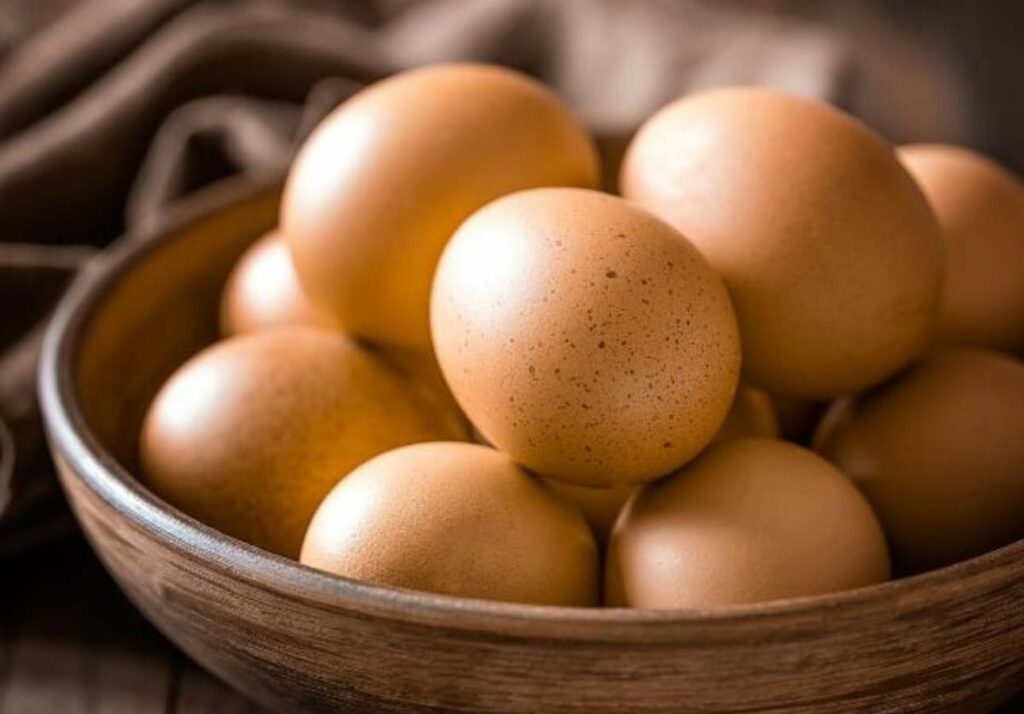
Dehydrate Eggs
Dehydrating eggs is a popular method of preserving farm fresh eggs without a fridge or freezer. Dehydrated eggs take little space and can be a good choice for households that stock prepper pantries or emergency kits.
To dehydrate eggs, crack them into a bowl and whisk together before pouring them onto a fruit leather tray in your dehydrator. This Food Dehydrator Machine from Magic Mill works well if you don’t have a lot of space and want something more affordable than bigger dehydrators.
Set the dehydrator at 140 F for eight to 10 hours. Make sure you spread the egg mixture evenly so that it dries uniformly. Occasionally, stir eggs so they dry consistently. Break the dried eggs into chunks, then use a coffee grinder or blender to grind them into powdered eggs if you prefer these to dehydrated egg pieces.
To rehydrate and cook your dehydrated or powdered eggs, add water and wait 20 minutes. Use rehydrated eggs in baking, scrambled eggs, or even egg smoothies. Dehydrated or powdered eggs are lightweight and take little space, making them an excellent addition to backpacking meals or camping kitchen supplies.
Water Glass Farm Fresh Eggs
Long before every home had a fridge and freezer, North American households were learning how to water glass eggs for long-term storage. This simple egg preservation method protects eggs from bacteria that cause the breakdown of the shells.
Water-glassing eggs helps to avoid egg spoilage by encasing the shells in a liquid lime solution.
However, do not try water-glassing store-bought eggs.
In North America, grocers usually store commercially grown eggs in the refrigerated section. Their bloom, the protective layer that coats the egg when laid, gets washed away during commercial egg processing.
When water-glassing, only use unwashed farm fresh eggs so the bloom remains intact. The bloom naturally on the eggs helps protect the eggs from going bad for several weeks.

How to Water Glass Eggs
You will need pickling lime, filtered or distilled water and a storage container with a lid to water glass eggs. Mix your lime solution with one ounce of pickling lime to one quart of water.
Exceeding the lime-to-water ratio won’t harm your eggs; however, not using enough lime can harm them, so measure carefully. Weigh the lime and water on the side of caution and add a little extra if you don’t have a kitchen scale.
Place fresh unwashed eggs into a wide-mouthed container and add the solution. Then store water-glassed eggs in the lime solution for up to two years, providing the eggs haven’t cracked.
“Water glassing eggs is an easy and straightforward way to preserve farm fresh eggs. The hardest part was finding eggs clean enough to use because you can’t wash them before immersing in the pickling lime solution.”
— Laura Sampson, Little House Big Alaska
Avoid moving your water-glassed eggs or adding too many eggs to the container to minimize the chance of accidentally breaking the lower layer of eggs.
Water-glassing eggs does not pickle them. This method of preserving eggs lets you use them just like fresh eggs come winter.
Preserve Eggs in Lard
One way to make washed fresh eggs last longer involves replacing the bloom if it was removed due to washing. Do this with lard, mineral oil or shortening. The fat creates a barrier around the shell that protects the egg from air and bacteria, which helps prevent contamination and spoilage.
This method is also known as “potting” and has been particularly useful in regions where fresh eggs are scarce. It’s a good option if eggs are one of the items you buy in bulk to stock your pantry and you expect to use them within four months.
Preserving fresh eggs with a lard rub carried my eggs through many months of cold weather. It was a simple process my children and I worked on together. We buffed fresh eggs with lard until the usually porous shells were sealed and prepped for long-term storage. Out of 120 eggs, none spoiled, even after being stored at room temperature for four months.
Preserving eggs in lard, mineral oil or shortening may work best when the weather is cool, and the risk of spoiling is lower. Inspect each egg carefully to ensure each egg gets fully coated with the oil or shortening. Also, make sure to store them in a cool, dark place to keep them shelf-stable for a longer time.
Safety tips for preserving eggs
Many of these egg preservation methods are not widely used today because of the wide availability of refrigeration. Additionally, there are some safety concerns about older methods like potting and water glassing.
When they’re not handled or stored right, eggs are prone to contamination. To keep your stored eggs safe to eat, make sure to:
- Go for freezing: Freezing is the safest option for storing eggs long-term because it keeps bacteria inactive and prevents the growth of harmful microorganisms. It’s also the easiest technique to do.
- Research your storage methods: I don’t recommend trying water glassing or potting if you have little to no experience with it. Be sure to research each technique thoroughly before trying them.
- Cook your eggs properly: Just because the eggs are preserved doesn’t mean they don’t harbor microorganisms. Cooking eggs at the right temperature will likely kill most of them.
- Check before cooking: Always check for signs of egg spoilage. If your eggs look or smell funny, they might not be safe to eat, so don’t take your choices. When in doubt, throw them out!
Preserve and Store Eggs for The Long Term
If you have too many eggs, try one of several methods to store them for later. Other than refrigeration, you could try freezing them. Safely storing eggs for the long term may help you save money and feel better about your family’s food supply.
But what do you do with all your stored eggs? Explore our recipe catalog to learn how you can make the most out of your stockpile.
Potions of this article originally appeared on An Off Grid Life.


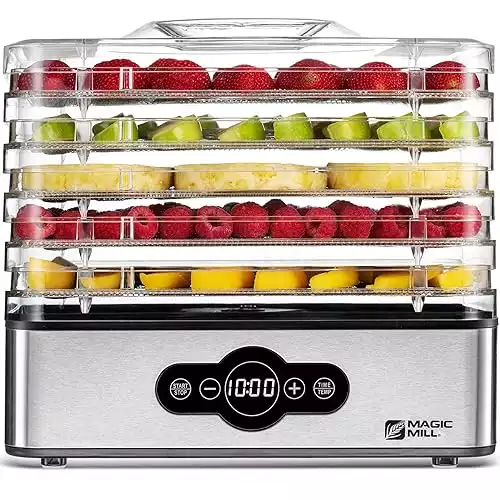

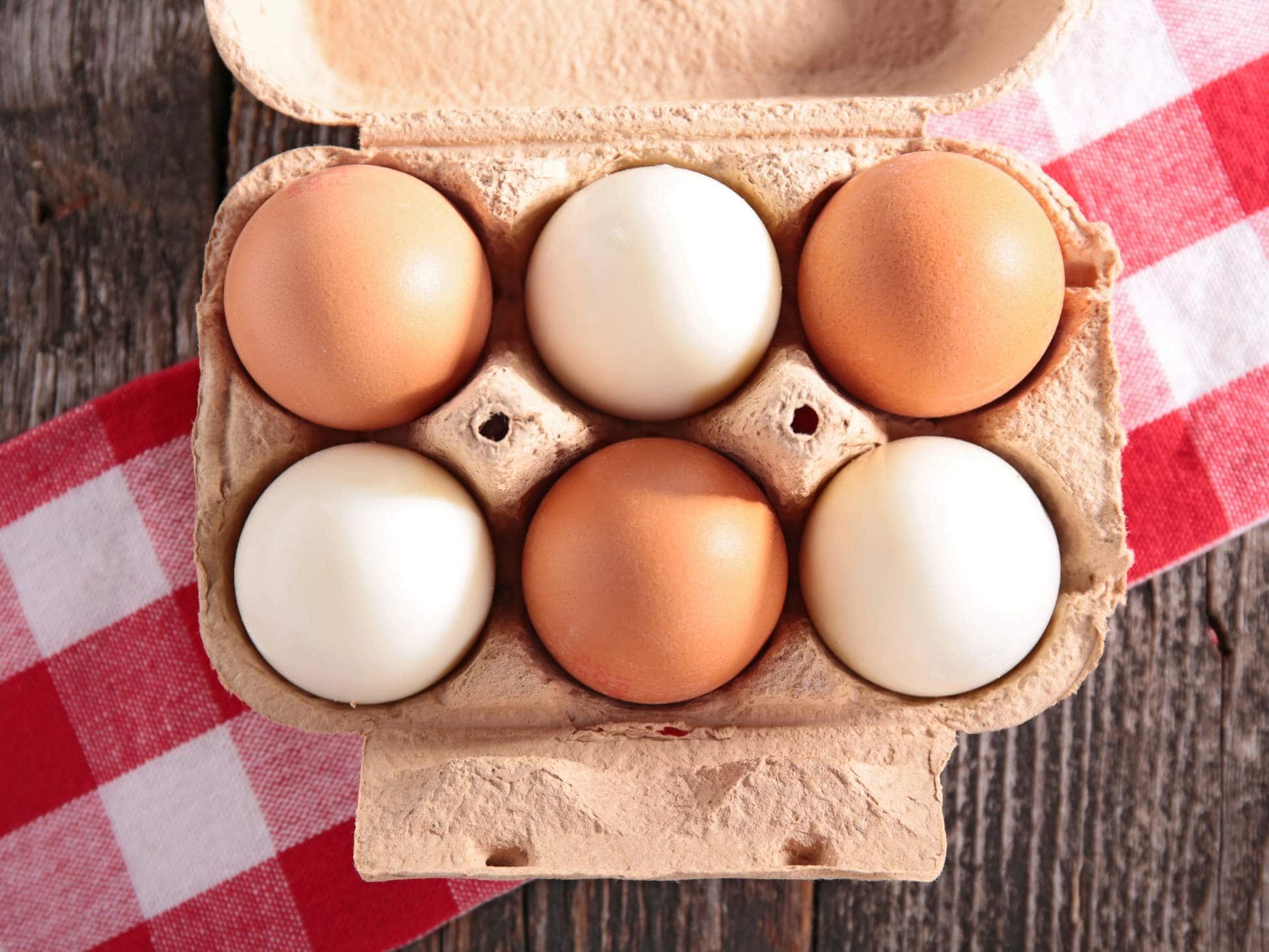


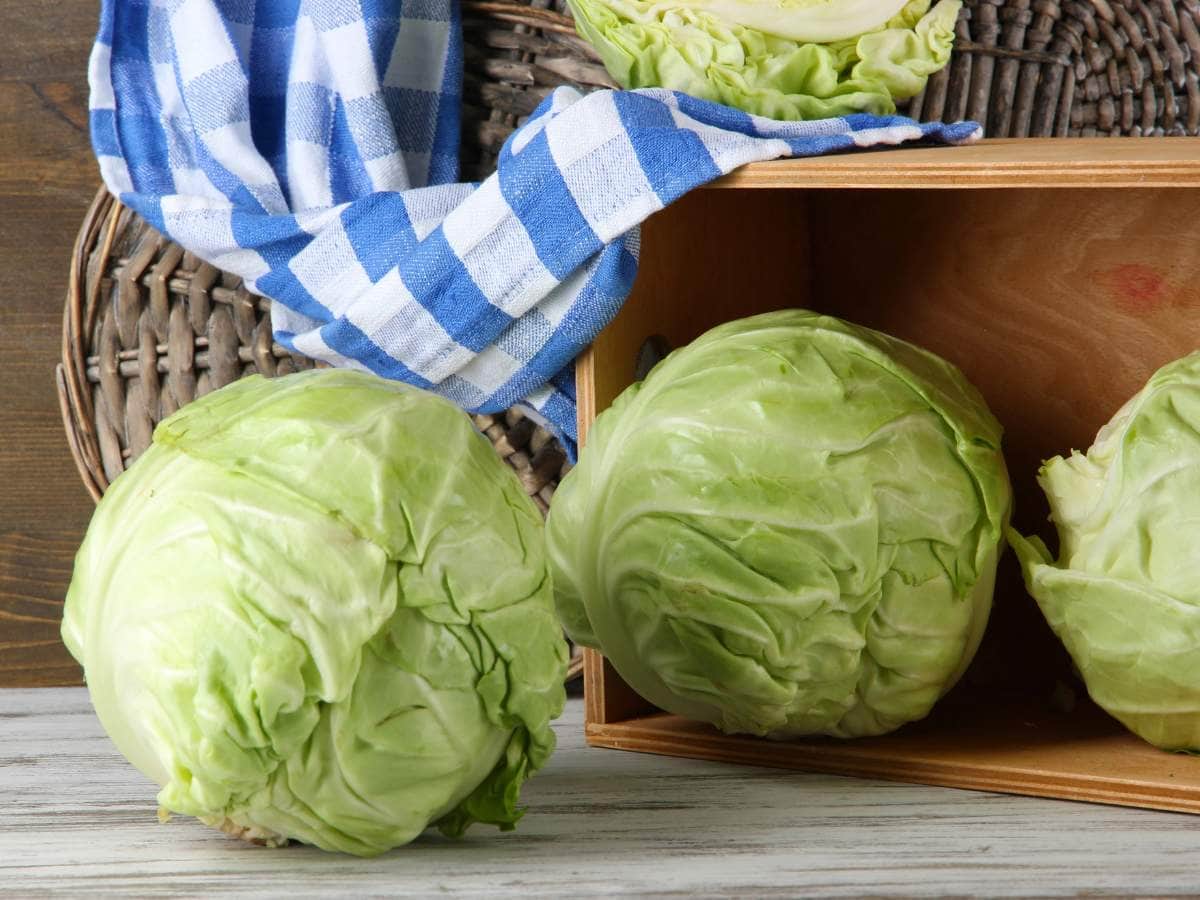
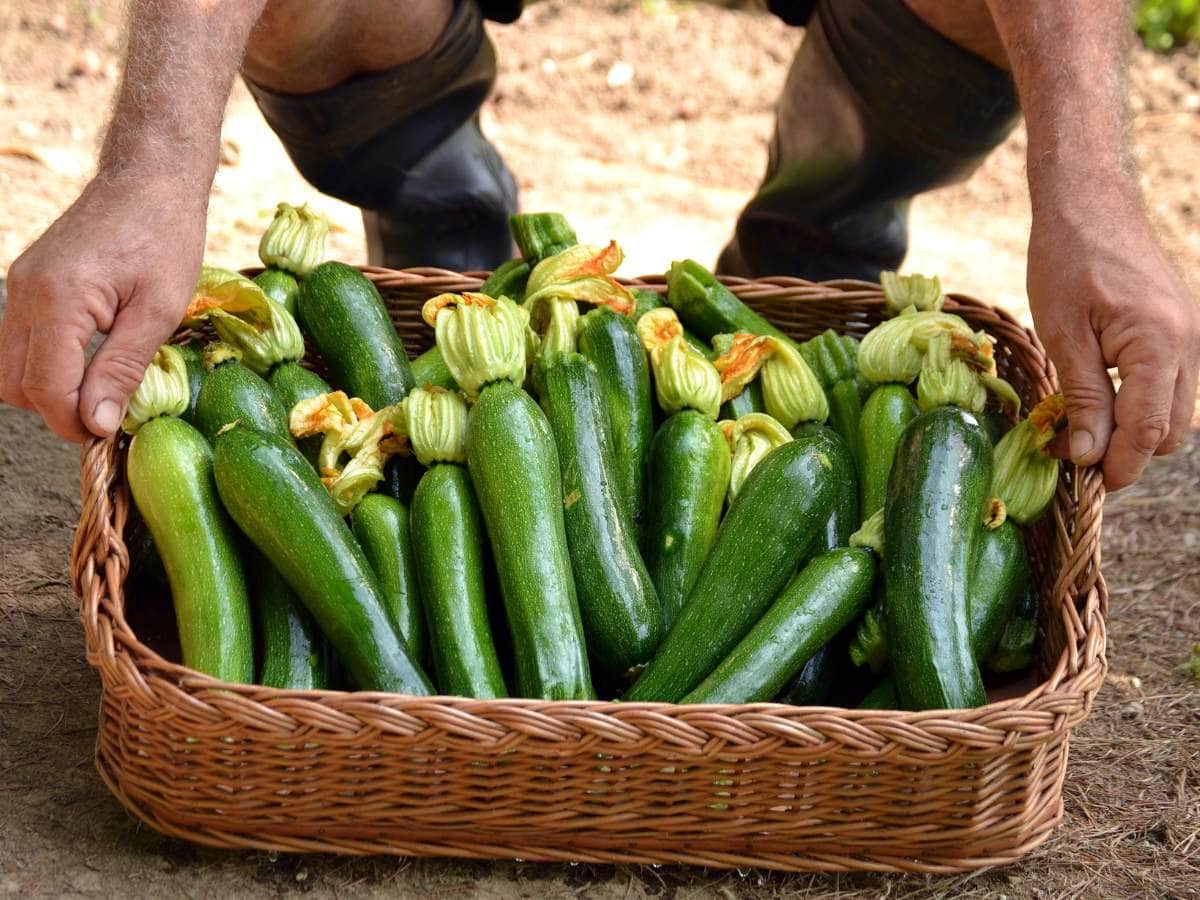
I’ve seen water eggs on social media and was a bit too intimidated to try, but I don’t know why I never thought to simply freeze eggs for later. Our hens are laying tons of eggs right now, but I know it won’t always be like that. I was thinking about selling some to neighbors, but I think I’d rather save for later!
Hi, Florrie. This method works perfectly for me. I hope it does for you too. Good call on saving it for later! It’s always useful to have a back up supply.